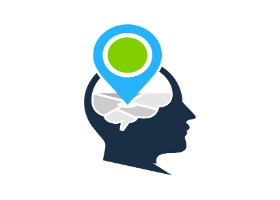by Robert A. Scott

Nizwa Design/ Shutterstock
Asking questions and listening are essential traits for leaders. I remember reading that the publisher of an influential magazine of ideas called a subscriber each night before going home. He wanted to know what was valued and what was missing. This was a form of ethnography, exploring grass-roots information from the point of view of those in the field. He wanted community, or local, knowledge to help design the contents of an issue, and the articles to be included, as well as an assessment of the last edition to learn how to prepare for the next.
I thought that I could do the same by calling corporate and school district employers and asking how our graduates were doing and what we could do better in preparing them.
I started asking students, faculty, staff, and alumni, at informal and formal gatherings, “What is going well?” “What do you wish we did better or more of?”
This is the idea of local knowledge: asking those in the community closest to the fulfillment of your mission about possible impediments and improvements. Leaders may have designed and approved the new policy or program, but those closest to its execution will know how it works or doesn’t. This is an important trait for leaders and for leaders to instill in those they mentor and teach.
Once, when talking to alumni who became teachers through an accelerated program for those who had changed careers, I asked: what challenge didn’t we prepare you to meet? The answers weren’t about subject matter or how students learn. The concern was about classroom management, about how to maintain respectful order in a classroom of 30 energetic teenagers, each learning at his or her own pace. Our faculty took note.
During a session with students, I asked about how they managed their day, “Where do you hang your coat?” When I heard that the student’s car trunk served as her locker, I asked the vice president for Administration how many lockers we had for commuter students. The answer was “Not enough.” So we toured the campus and asked students to identify locations for lounges and lockers.
On another occasion, early in my presidency, I asked a consultant to help me learn about the campus from students, faculty, and staff. One of my concerns was about students transferring to other colleges. When we learned that students were prohibited from playing Frisbee on the lawn, I changed the policy. Yes, we want beautiful grounds, but we also want students to feel “at home.” We figured out how to do both.
Asking for help in the design and assessment of proposals, whether for an advertising campaign or capital planning, is a good way to involve local informants, including faculty and alumni. While it may seem to be a way to gain buy-in for a project, it also is a way to find local knowledge.
One of the more interesting examples of the value of local knowledge occurred when I was at Cornell and asked to join a group flying to West Virginia Tech to examine their computerized Student Information System, including student course registration. I had designed a system for the University of Hawaii campuses so my colleagues knew that I was familiar with such programs.
We assembled in a conference room, and the Tech staff began extolling the virtues of their system. Much of it was technical, so I decided to leave the room and find some local knowledge. I found the secretary to the dean, introduced myself, and asked how the student registration system worked from her perspective. She unleashed her concerns. The scheduling algorithm gave priority to football and basketball players, leaving even seniors shut out of required courses. I thanked her, returned to the conference room, raised my hand, and asked for an explanation of the priorities designed into the algorithm. The meeting ended with no sale.
Inquiring about local knowledge is not only important for leaders, but the approach also benefits those whom we mentor and those we educate. No matter what career fields our graduates will enter, they should know the value of local knowledge. Think of architects and planners who ignore the local community when designing urban renewal projects and the officials who close mental health facilities before asking those with lived experience about the alternatives needed that can be more beneficial.
Think of the regulators who assess energy company proposals without considering the impact of the plans on water or air quality, or on local heritage and customs. Think also of the retail stores and manufacturers who ignore the experiences of their employees and customers when designing layouts and products.
Asking those closest to the implementation of a decision does not weaken the executive. It improves the chances for successful execution of the strategy and achievement of the goal.
Disclaimer: HigherEdJobs encourages free discourse and expression of issues while striving for accurate presentation to our audience. A guest opinion serves as an avenue to address and explore important topics, for authors to impart their expertise to our higher education audience and to challenge readers to consider points of view that could be outside of their comfort zone. The viewpoints, beliefs, or opinions expressed in the above piece are those of the author(s) and don’t imply endorsement by HigherEdJobs.

